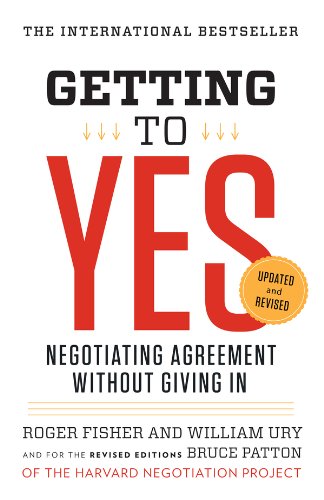

This article is an excerpt from the Shortform summary of "Getting to Yes" by Roger Fisher and William Ury. Shortform has the world's best summaries of books you should be reading.
Like this article? Sign up for a free trial here .
Does negotiating work in extreme situations? Is negotiating with terrorists effective?
Many Western governments refuse to negotiate with terrorists, or at least say they do. This may be a mistake. Learn why negotiating with terrorists is usually the best option a government has, even when it’s a bad option.
Extreme Negotiating
For most of us, negotiations involve typical things like jobs, real estate, divorces and other civil matters, or labor contracts. Principled negotiation works well in these circumstances, as well as in higher-level matters between countries. But what happens when the other side is decidedly unprincipled, for instance, a Hitler or group of terrorists? Principled negotiation can still work when negotiating with terrorists, but involves somewhat different considerations.
However nasty the other side, unless you have a better alternative than negotiating, it makes sense to negotiate. The key question is how.
Negotiating With Terrorists
In the case of terrorists, even if you’re not talking to them, you’re negotiating with them — by words and actions, even from a distance, you’re trying to influence their decisions and they’re trying to influence yours. Negotiating with terrorists is essentially unavoidable. The question is whether to negotiate indirectly from a distance or more directly. You’ll have greater influence if your communication is strong.
Negotiation doesn’t mean giving in. It may allow you to convince the other side they won’t get a ransom. You also may learn of some legitimate interest they have that you can use in a deal where neither side gives in. For example, in the resolution of the Iran hostage crisis in 1981, the interests of both sides were served and neither side gave more than the other side was entitled to: Iran released the hostages and paid its debts, and upon payment, the U.S. returned the funds it had seized.
Countries often refuse to negotiate with terrorists on the theory that it rewards them with attention and status and encourages more terrorist attacks. However, you can avoid giving terrorists public attention by taking a lower-profile approach using low-level officials or professionals as negotiators. Also, professionals can be highly successful. Police negotiators often succeed in getting hostages released and taking criminals into custody.
Negotiating With a Hitler
Just as in the case of negotiating with terrorists, whether to negotiate with a figure like Hitler depends on the alternative. Sometimes war — fighting and dying — is better or more honorable than negotiation. On the other hand, war has huge costs and offers no guarantee of good results. If you can substantially meet your interests through negotiation, it deserves consideration, just as it does in the case of negotiating with terrorists.
From a Western point of view, Soviet premier Joseph Stalin was almost as bad as Hitler, employing aggression, genocide, and a similar ideology. But war, with the availability of the hydrogen bomb, wasn’t a viable option for getting rid of him or his ideology. Nor were there principles involved that justified war. Instead, the West opposed Soviet communism by applying other kinds of pressure and it eventually collapsed on its own.
Even with a Hitler or Stalin, negotiating may have the potential to produce results that serve our interests better than the alternative of war.
When the other side is acting out of religious conviction, they still may be influenceable through negotiation. While they’re not going to change their religious ideology, they may have interests that can be served by an agreement that doesn’t compromise either side’s principles. Negotiating with terrorists can be effective.
Governments often mistakenly overvalue their alternatives to negotiation. They may imply that if other means fail, they always have a military option. But sometimes, military options aren’t viable. For instance, raids to rescue hostages have a high risk of failure. The question is what decision you want the other side to make, and how military force could influence them to make it. Sometimes, although it’s a bad option, negotiating with terrorists is really your only option.
———End of Preview———

Like what you just read? Read the rest of the world's best summary of "Getting to Yes" at Shortform . Learn the book's critical concepts in 20 minutes or less .
Here's what you'll find in our full Getting to yes summary :
- Why the standard way of negotiating is completely wrong
- How to find outcomes that are wins for both sides
- How to protect yourself against aggressive negotiators






